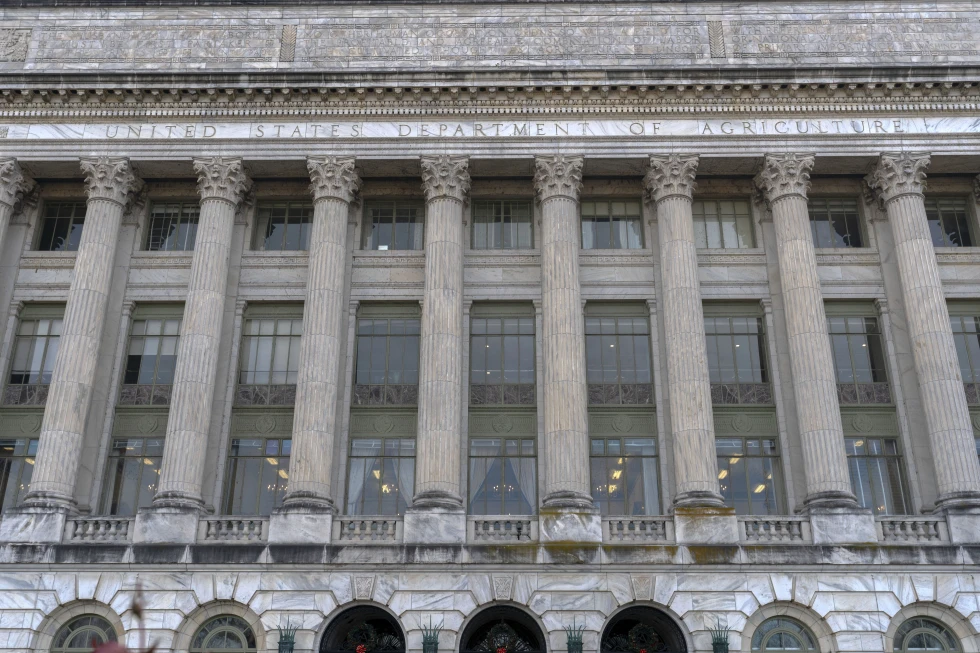Republican state lawmakers seeking to aid President Donald Trump’s crackdown on illegal immigration are threatening local officials who resist with lawsuits, fines and even potential jail time.
Lawmakers in more than 20 states this year have filed legislation targeting so-called sanctuary policies that limit cooperation with federal immigration authorities, according to an Associated Press analysis using the bill-tracking software Plural.
Some of those states already ban sanctuary policies but are now proposing to punish mayors, council members and other government officials who violate the prohibition.
The goal is to provide “teeth to those who are being aggrieved by local governments and local officials who are not abiding by Georgia immigration law,” said Republican state Sen. Blake Tillery, whose legislation would allow lawsuits against anyone who implements sanctuary policies. His bill recently passed the Senate and is now in the House.
Opponents have raised concerns that the legislation could lead local police and sheriffs to detain immigrants for longer than they are supposed to under federal law out of fear of getting sued.
“We’re threatening our local law enforcement who are doing the best job they can to keep our communities safe,” said Georgia state Sen. Nikki Merritt, a Democrat.
The state proposals come as the Trump administration also has begun taking legal action against governments that have adopted policies inhibiting arrests and deportations by U.S. Immigration and Customs Enforcement. The Department of Justice has sued Illinois, Chicago and Cook County, alleging they are violating federal law by not cooperating with immigration authorities.
A Georgia law enacted last year already mandates that local law enforcement cooperate with federal authorities to identify and detain immigrants in the U.S. illegally, or else lose state funding and face misdemeanor charges. The legislation recently passed by the state Senate doubles down by letting people sue local governments, officials and employees for violating the ban.
Immigrants and advocates in Georgia say the legislation, if passed, could stoke fear in communities already worried about ICE officials arresting loved ones in homes, churches or schools.
“This all relates to Donald Trump’s war on immigrants and local people trying to garner favor with him through legislation that doesn’t solve any problems,” said Charles Kuck, an Atlanta immigration attorney who opposes the legislation.
Mike Mitchell, deputy executive director of the Georgia Sheriffs’ Association, said the organization has a “neutral” position on the bill but noted sheriffs already are following immigration law.
Louisiana passed a law last year requiring law enforcement agencies to “use best efforts” to enforce federal immigration law. Earlier this month, Louisiana Attorney General Liz Murrill sued the sheriff’s office in New Orleans, alleging it is violating the state ban on sanctuary immigration policies.
The Orleans Parish Sheriff’s Office declines ICE requests to hold detainees for extra time except when they face murder, rape, kidnapping, treason or robbery charges, according to a 2013 policy put in place under a consent judgment in federal court. The attorney general’s lawsuit seeks to end that federal court order.
The sheriff’s office also restricts the information it shares with ICE and prevents federal immigration agents from entering its facilities without court authorization or interviewing detainees without legal counsel.
The sheriff’s office said in an emailed statement that it “remains in full compliance with all applicable state laws and valid court orders related to ICE detainers.”
An anti-sanctuary measure was the first item signed into law by Republican Gov. Larry Rhoden of South Dakota after he took over for former Gov. Kristi Noem, who was picked by Trump to be homeland security secretary. The law bans state and local policies that limit communication with federal officials about people’s immigration status, however it contains no penalties.
Other states have gone further. A sweeping immigration law signed recently by Republican Florida Gov. Ron DeSantis requires the attorney general to take legal action against local governments that adopt policies refusing to comply with federal requests to detain immigrants in the country illegally. Local officials who willfully violate a ban on such sanctuary policies can face fines up to $5,000.
Tennessee law already denies state economic development funds to local governments that violate a ban on sanctuary policies. A law signed recently by Gov. Bill Lee enhances that by subjecting local officials who vote for such policies to felony charges punishable by up to six years in prison. Legislative attorneys have said such penalties could be unconstitutional due to protections afforded elected officials while carrying out their duties.
Legislation that passed the Wyoming House and is now pending in the Senate would not only bar local governments from adopting immigration sanctuary policies but also block citizens from proposing them through initiative petitions. The measure contains steep penalties. The governor could withhold state funds from counties, cities and towns that adopt such policies. Local officials who refuse to cooperate with federal immigration authorities could face felony charges punishable by 5-10 years in prison and a fine up to $20,000.
Republican state Rep. Joel Guggenmos acknowledged there are no sanctuary jurisdictions in Wyoming but told colleagues during a committee hearing that he was sponsoring the legislation as a preemptive measure.
“As I look at other states, this is becoming a problem,” Guggenmos said.
New Hampshire lawmakers have advanced two separate bills targeting sanctuary policies. A Senate version would allow the state attorney general to sue local governments that prohibit the enforcement of federal immigration laws and seek fines equal to 25% of their state funding. A House version omits the fine but includes more detailed directives for local governments to cooperate with federal immigration authorities.
___
Republished with permission of The Associated Press.
Post Views: 0

 Entertainment8 years ago
Entertainment8 years ago
 Entertainment8 years ago
Entertainment8 years ago
 Politics8 years ago
Politics8 years ago
 Tech8 years ago
Tech8 years ago
 Tech8 years ago
Tech8 years ago
 Tech8 years ago
Tech8 years ago
 Politics8 years ago
Politics8 years ago
 Tech8 years ago
Tech8 years ago









